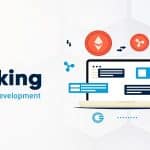
Are you thinking about starting a blog?
You’re in the right place. Blogging is an incredibly rewarding experience and can open up many opportunities for you if done correctly. But, it’s important to keep in mind that blogging isn’t as simple as just writing down your thoughts on a page.
So here are seven essential tips that any new blogger should consider before getting started with their website or blog – from finding your niche and creating content ideas to setting goals, and more. By following these useful tips, anyone can become a successful blogger!
Choose Your Niche

First of all, you need to narrow down your focus and decide on the type of content you want to create. Think about what topics are most interesting for you and what areas of expertise or knowledge would be useful to your audience. Blogs can range from general lifestyle topics, travel writing, food reviews, and personal essays – the list is endless.
When you think about the benefits of blogging, it’s important to pick something you’re passionate about and that will hold your interest for a long time. And if you’re ever feeling stuck for content ideas, there are plenty of online resources to inspire you. Make sure to narrow down your focus and hone in on specific topics that fit within the scope of your blog.
Brainstorm Content Ideas
Blogging doesn’t just involve writing – it also requires coming up with content ideas that will inspire readers and engage them in meaningful discussions. Start by jotting down some potential topic ideas related to your chosen niche, then expand upon those ideas by researching current trends or news stories.
You should also be sure to mix it up a bit by including evergreen topics as well as more timely pieces so that you can ensure your content remains fresh and relevant. For example, if you’re blogging about health and wellness, try to include fresh recipes alongside more traditional advice.
Set Goals
Having goals is essential for any successful blog or website – it gives you something to strive for and helps motivate you to stay on track. When setting goals, think about what kind of success you want your blog to have, such as how many page views or subscribers you want to reach within a certain amount of time.
This will help guide your content creation process and ensure that everything you write remains focused on achieving those objectives.
Design Your Website
Once you’ve chosen a niche and come up with content ideas, it’s time to design your website or blog – this is where all your hard work comes together. Many website builders make it easy to create a professional-looking blog, even if you don’t have any coding experience.
Spend some time exploring the different options available and find one that works best for your needs. Just remember that no matter which platform you choose, make sure your blog looks clean and organized with an easily navigable design.
Promote Your Content
For your blog to be successful, it’s important to promote your content across multiple channels – including social media platforms and other blogs or websites related to your niche. This will help draw attention to your content and give you more exposure in the online world. Make sure to also take advantage of SEO strategies such as keyword research and optimizing your titles and tags.
Think of promotion long term – where do you want your blog to be in a year or two? Taking small steps now can set up your blog for success. Make sure to also track the impact of your promotions – this will help you identify which methods are working best and make adjustments accordingly. With a strategic approach, you can achieve great results with your content promotion efforts.
Engage With Your Audience
Engagement is key when it comes to blogging – after all, the point is to create content that resonates with your readers. Make sure to respond promptly to comments, questions, and feedback left on your blog or website so that you can foster a sense of community with your audience.
This will also help increase loyalty by creating an environment where people feel comfortable enough to stay engaged with you over time.
Track Your Performance

Last but not least, tracking how well your blog is performing can help you make better decisions about the type of content you want to create in the future. Keep track of various metrics such as page views, subscribers, and social media shares so that you can get a better understanding of what works and what doesn’t.
This will help inform your strategy moving forward, ensuring that you’re always creating content that resonates with readers. Additionally, tracking your performance can also be a great way to measure progress over time.
By following these tips, you’ll be well on your way to creating content that will engage and excite readers. Just remember to stay focused on your niche, set goals, design your website, promote yourself, engage with readers, and track your performance – all of these things will help ensure the success of your blog or website.










